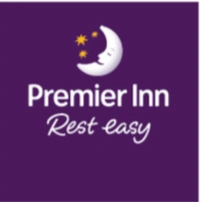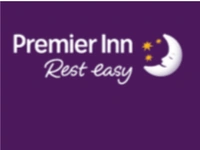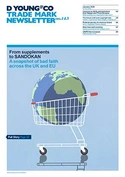Acquiring earlier marks, fame negating confusion and (not) a family of marks argument: easyGroup v Premier Inn Hotels
In August 2025, easyGroup’s trade mark infringement claim against Premier Inn’s use of signs containing “REST EASY” in relation to hotel services was dismissed by the UK High Court. The claim was brought for trade mark infringement under sections 10(2) (a likelihood of confusion) and 10(3) (reputation) of the Trade Marks Act 1994. Three interesting points were raised within this decision, summarised below.
easyGroup was able to amend its original claim to rely on an earlier mark assigned to it after the claim had been issued
easyGroup’s original claim, issued in September 2023, was brought solely under s10(3) of the Trade Marks Act 1994 in respect of its easyHotel Mark and easy (figurative) mark:

In an assignment dated 24 January 2024, easyGroup acquired a registration for the word mark REST EASY APARTMENTS, registered in respect of services such as rental of apartments in class 36. The mark was acquired in settlement of a trade mark infringement claim brought by easyGroup against the former trade mark owner. The former owner had not asserted any trade mark infringement by Premier Inn. In March 2024, by amendment, a claim was added solely under s10(2) of the Trade Marks Act 1994 in respect of easyGroup’s REST EASY APARTMENTS mark and its class 36 services. Notably:
- easyGroup’s solicitors first wrote to Premier Inn in February 2023, before easyGroup had acquired the REST EASY APARTMENTS mark; and
- easyGroup did not rely on any use of the REST EASY APARTMENTS mark (and were not required to).
Use of a “well-known brand name” was a relevant consideration in negating a finding of a likelihood of confusion
Premier Inn was found to be using signs (shown below) using “Rest easy” alongside the words “Premier Inn” and a moon device:


The High Court noted that the judgment of Combe International v Dr August Wolff [2022] EWCA Civ 1562 had indicated that “…the fact that the start of a composite sign is a well-known brand name may avoid the risk of confusion if it was otherwise present but will not necessarily do so. It must be part of the total global assessment to be undertaken.” Applying this principle, the High Court concluded that “Premier Inn is a very well-known brand name in the UK, which would negate any likelihood of confusion”.
Various methods can be used to establish a reputation and enhanced distinctiveness
easyGroup attempted to illustrate a reputation and enhanced distinctiveness in its easy (figurative) mark and easyHotel mark in the following methods:
1. Survey
easyGroup was granted permission to file survey evidence. However, the High Court suggested that it did not have real value. It was stated that this was not to be seen as a criticism of the survey design, but rather “…a realistic assessment of the difficulty of designing a survey which both complies with the Whitford guidelines and provides meaningful answers.” The Whitford guidelines have established rules for survey evidence in UK trade mark cases since the 1980s.
2. Use as part of composite marks
The High Court accepted that it was possible for the easy (figurative) mark to have acquired distinctiveness by use as part of easyJet or easyHotel. However, on the basis of the evidence filed, the High Court found that whilst the evidence showed that consumers associated the easy (figurative) mark with easyJet and airline travel and to a much lesser extent with easyHotel and hotels, that was not evidence that the easy (figurative) mark itself had enhanced distinctiveness, concluding “Association is not sufficient to establish enhanced distinctiveness.”
3. (Not) a family of marks?
Notably, earlier in proceedings easyGroup disavowed any intention to rely on the “family of marks” principle. Nonetheless, it sought to rely on the reputation of brands within the “easy Travel Family”, namely EASYJET, EASYCAR and EASYBUS, purportedly brands known for offering low-cost services in the travel sector, as a basis for saying that the easyHotel mark had gained a reputation for low-cost hotel services. easyGroup’s counsel described this as “a new member of the easy Travel Family coming along and getting a sort of rocket booster effect so that they get instant fame, albeit that they do not get reputation and enhanced distinctiveness until they have started to trade”. However, the High Court found this to be “…a family of marks argument, directed at establishing reputation for the purposes of the s.10(3) claim.” Therefore, easyGroup could not rely on it.
In the event that the High Court was wrong on this, it found that given the lack of reputation or enhanced distinctiveness in the relevant accommodation rental services, association with the easy Travel Family could not confer on the easyHotel mark the necessary reputation and enhanced distinctiveness in the relevant services, commenting, “If it were otherwise, there would be no magic in limiting this to the easy Travel Family. It would logically apply to all of the “easy” brands as they all claim to offer low-cost, no frills service. To hold that a trade mark could obtain reputation and enhanced distinctiveness in particular services because of an association with trade marks sharing some similarity, but registered for and/or trading in different services would be to extend the protection given by trade marks well beyond the protection provided for under statute.”
In short
The case serves as a useful reminder that the context of use of a sign is important when assessing trade mark infringement, and that using a very well-known brand name in conjunction with a sign of arguably relatively low inherent distinctive character (such as REST EASY) may be sufficient to obviate a lack of confusion; but not always.
Case details at a glance
Jurisdiction: England & Wales
Decision level: High Court
Parties: easyGroup Limited v Premier Inn Hotels Limited
Date: 29 August 2025
Citation: [2025] EWHC 2229 (Ch)
Decision: dycip.com/2025ewhc2229-ch

